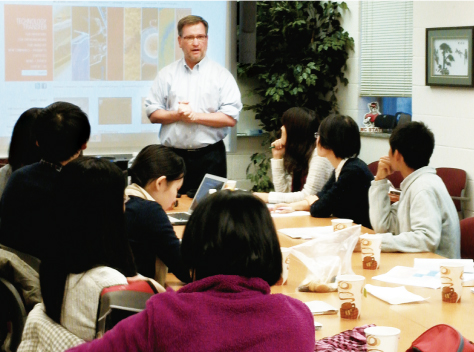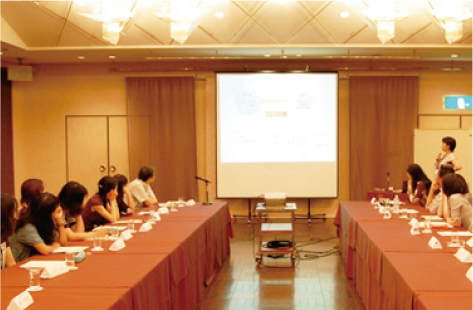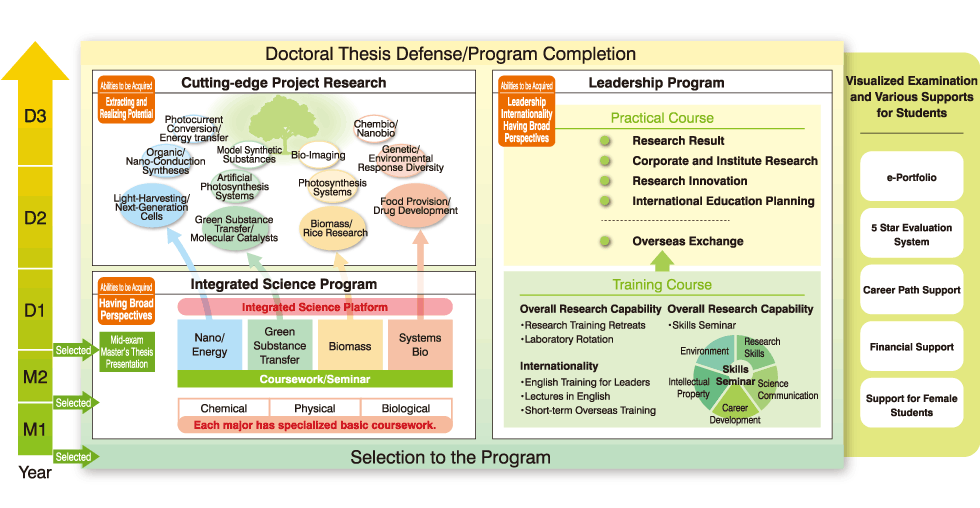

Since the number of students participating in this program is unlimited, the competition level is high. This creates an environment in which students who study different fields, and are in different academic years, can cooperate but also compete, during courses developed in collaboration with eight departments of the Graduate Schools of Science, Engineering and Bioagriculture, as well as various seminars coordinated by each school in the university, English training, and leadership training in North Carolina, USA. By presenting their academic achievements and research results, students can be stimulated and create a good network for exchange. Furthermore, this can benefit the students’ career path. Through this strategy, excellent human resources can be expected to develop.

Leadership training in North Carolina, USA
![]()

Off-site meeting to foster top female leaders
The promotion of women working in science should be considered a priority in social development. With the aim of being a frontrunner in this topic, we have formed a special team led by the top female scientists of our University, and have worked to develop linkages with other top universities overseas as well as with promoted female scientists. For example, every year “off-site meetings with the focus on developing female leaders” are organized exclusively for female students. Stimulated by the question on why there are so few female leaders, each student is encouraged to reflect about their vision and desired future career paths, with the encouragement of a female role model who is a leader in her field.
We provide opportunities to work out educational plans drawn up by students. Students have to carry out their plans by themselves, for instance, some groups of students have implemented a tutorial seminar to open up a new research field, a workshop to develop interdisciplinary fields, and a symposium to think about the challenges and
future directions for various world issues as scientists. Through the implementations of their plans, students can acquire a range of practical and theoretical skills particularly in leadership, team building, negotiation, and problem-solving.
Website: http://iger.bio.nagoya-u.ac.jp/index_e.php
[Composite Category-Environment-] Selected for FY2011
[Application Eligibility]
Graduate School of Science (Division of Material Science, Division of Biological Science); Graduate School of Engineering (Department of Applied Chemistry, Chemical Engineering and Biotechnology, Department of Molecular Design and Engineering, Department of Crystalline Materials Science); Graduate School of Bioagricultural Sciences (Department of Biological Mechanisms and Functions, Department of Applied Molecular Biosciences, Department of Bioengineering Sciences)
[Partner Institutions, etc.] 6 institutions
Institute for Molecular Science (IMS); National Institute for Basic Biology (NIBB); RIKEN; National Institute of Advanced Industrial Science and Technology (AIST); Toyota Central R&D Labs., Inc.; Toyota Physical and Chemical Research Institute













